Open call for projects : Human- Wildlife Initiative
Opening call for 2024 projects for Human-Wildlife Initiative in France, Spain and Switzerland

Opening call for 2024 projects for Human-Wildlife Initiative in France, Spain and Switzerland
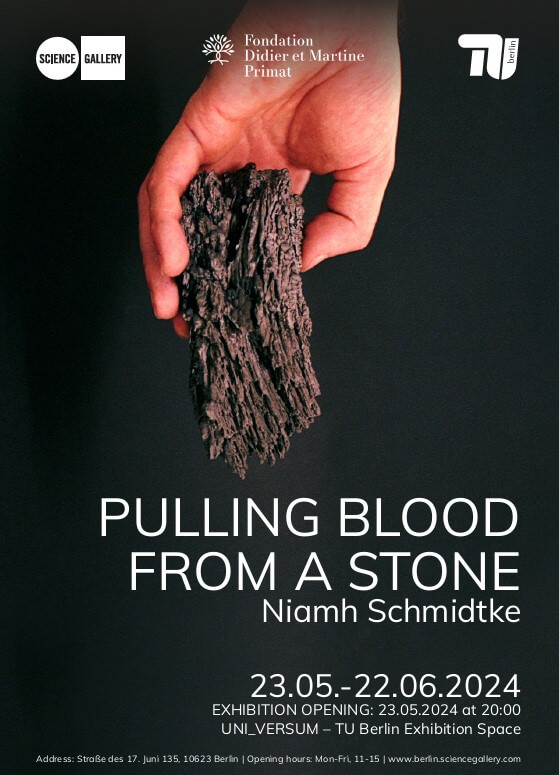
How do artists engage with rocks? What intrigues them wandering through TU Berlin’s Mineralogical Collections ?
This Science Gallery exhibition is the conclusion of the artistic residency program EARTH funded by Fondation Didier et Martine Primat.

We are delighted to announce the publication of the first report from the Fondation Didier et Martine Primat . In it, you’ll find all the information on the projects supported by the Foundation, confirming the outstanding work of our partners.
We hope you enjoy reading it.

Thanks to the Polymath Fellows 1.0, GCSP has selected three new fellows for the Polymath Fellowship Initiative 2.0:
Dr Barry O’Sullivan – Artificial Intelligence Fellow – Full Professor, School of Computer Science & IT at University College Cork
Dr Kate Adamala – Synthetic Biology Fellow – Assistant Professor at the University of Minnesota
Dr Renaud Jolivet – Neurotechnology Fellow – Professor of Neural Engineering and Computation at the Maastricht Centre for Systems Biology at Maastricht University.
For more information:
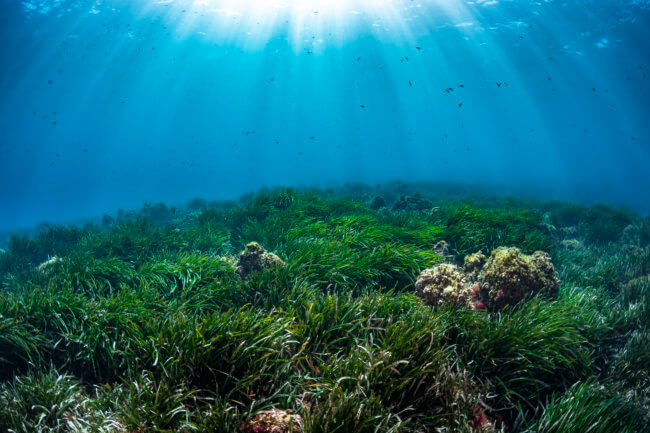
Earth is all what we have in common ! Fondation Didier et Martine looks forward to continuing to work towards responsible and sustainable lifestyles: raising awareness, sharing knowledge and encouraging initiatives to spark a positive change on the world.
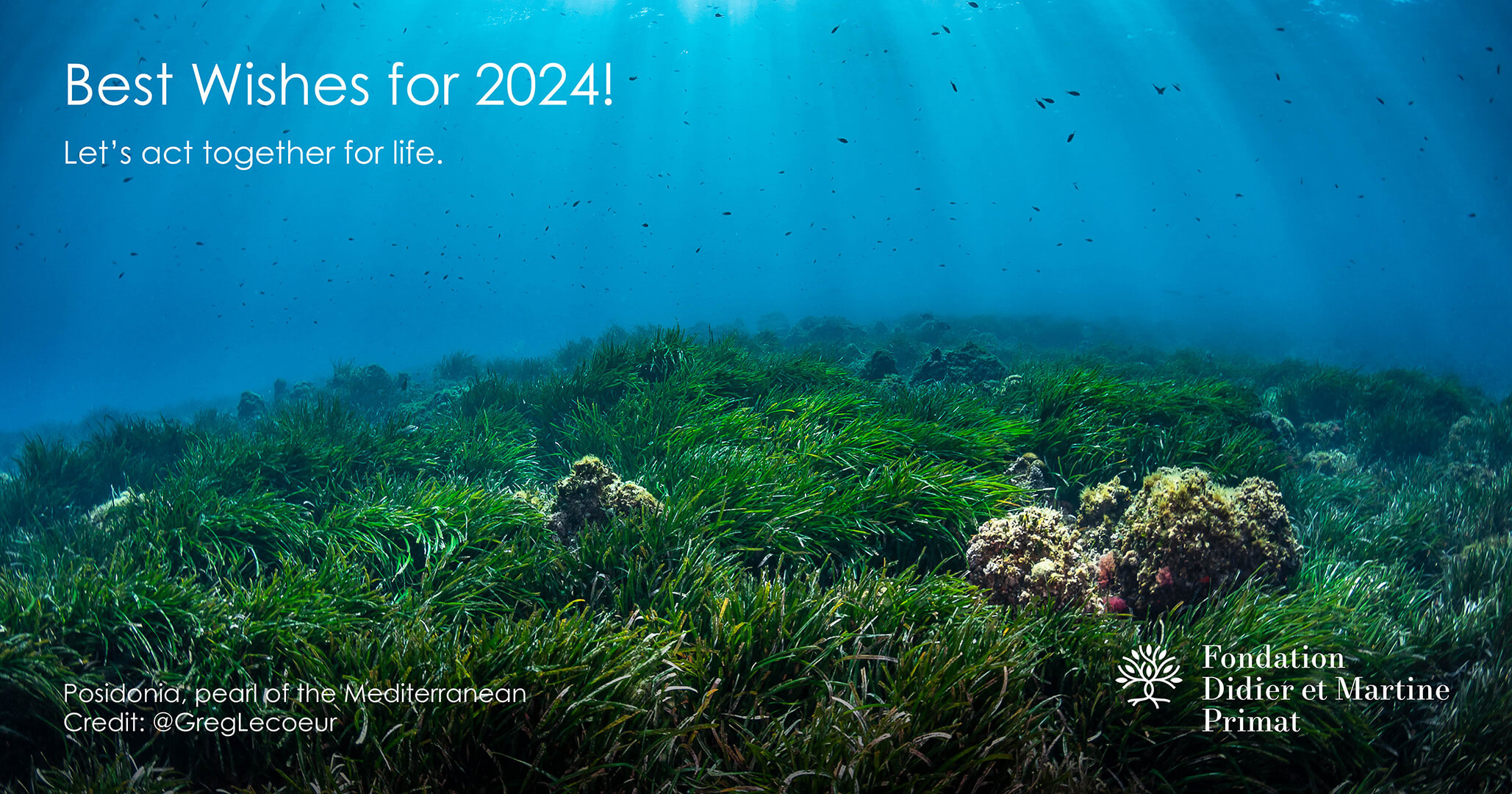

The summit was a great success for polar research and for Ice Memory.
The Paris Appeal for Glaciers and Poles, signed at this stage by 32 countries, represents a high-level commitment to preserving the memory of the ice.
The summit was marked by four key announcements:
President Emmanuel Macron announced a billion euros to support polar research
The launch of the United Nations Decade of Polar and Ice Sciences.
Ice Memory is one of the “major projects already agreed”, which will play a key role in the Decade.
Protecting the most endangered natural areas at the poles and glaciers.
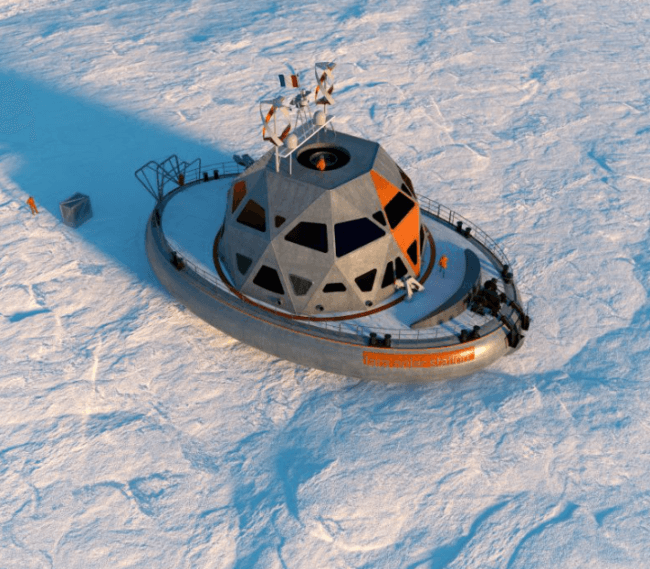
By 2045, the Arctic sea ice will have virtually disappeared due to climate change. This has major repercussions for the ecosystems and biodiversity of this region.
The countdown is on for this unprecedented scientific exploration of the North Pole. After 5 years of conception, the Tara Ocean Foundation’s project is moving from plans to reality. Construction of the new vessel designed for observation and scientific research in the Arctic is beginning.
[Tara Polar Station] The Tara Polar Station will be built in Cherbourg. The construction of the drifting polar scientific base has begun!
The shipyard has been entrusted to CMN – Constructions Mécaniques de Normandie in Cherbourg. It will take 18 months to complete, with delivery scheduled for early autumn 2024. The Tara Ocean Foundation is delighted to have this shipyard in France.
Designed with the architect Olivier Petit, the aim of the polar drifting base is to study the Arctic in order to speed up research into climate and biodiversity by taking scientists from all over the world on board on ten or so successive expeditions until 2045.
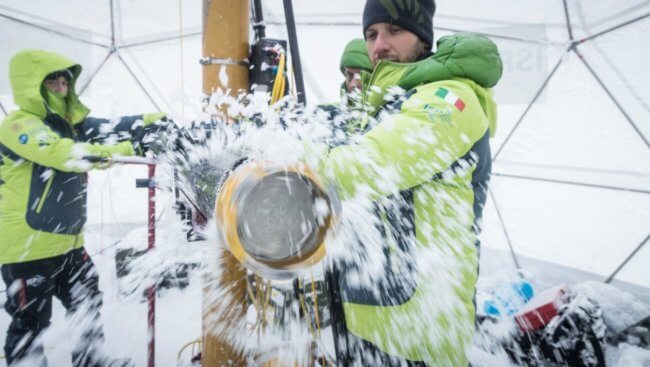
The drilling operation in Svalbard was a success and the scientists were able to drill 3 ice cores, but the team found a large and totally unexpected pocket of water at a depth of 25 metres.
This is further proof that Arctic warming is accelerating dramatically.
Ice Memory has therefore launched an appeal to the international scientific community to speed up Ice Memory backup operations, and this operation, like its predecessors, has received massive media coverage. It is interesting to note that the North American press and the business press covered Ice Memory much more extensively than in previous years. Finally, the World Economic Forum used Ice Memory to communicate the urgency of climate change to its stakeholders.

Dans le cadre de notre soutien au film “le Chêne”, se sont tenues plusieurs opérations éducatives et d’impacts en forêt de Boulogne et aux Sables d’Olonne avec l’Office National des Forêts

Emma Critchley’s art piece, Witness, will be screened at Brighton Festival at the Attenborough Centre for the Creative Arts with a live spoken word element and live orchestration on Saturday 07 May, 2022 11:00am and Sunday 15 May, 2022 9:00pm
Witness was originally commissioned by the Earth Water Sky Residency programme. Funded by Fondation Didier et Martine Primat at Ca’ Foscari University of Venice as part of the Science Gallery Network.
The Earth Water Sky Residency Programme is curated and produced by Ariane Koek.